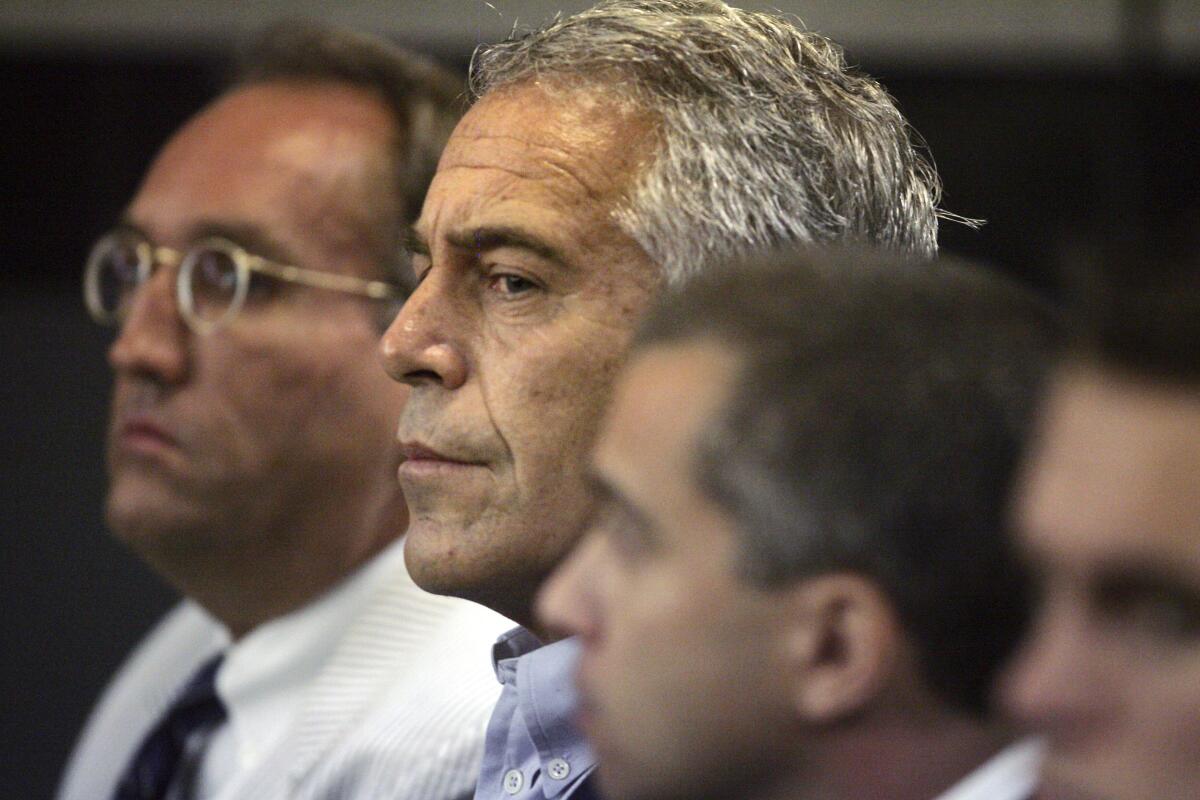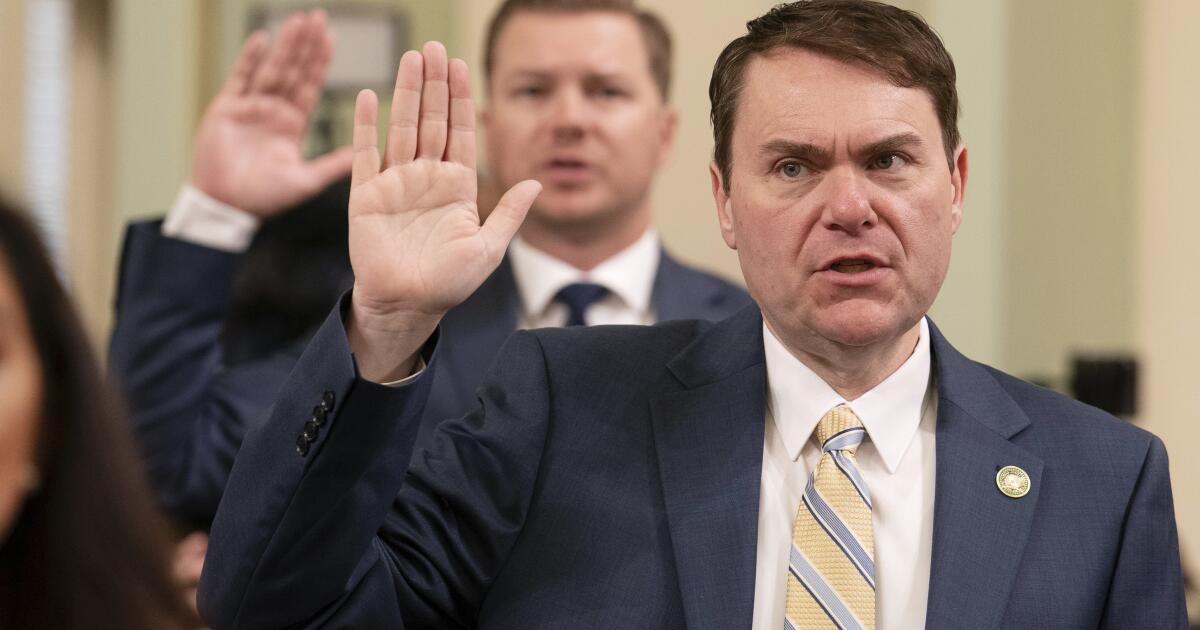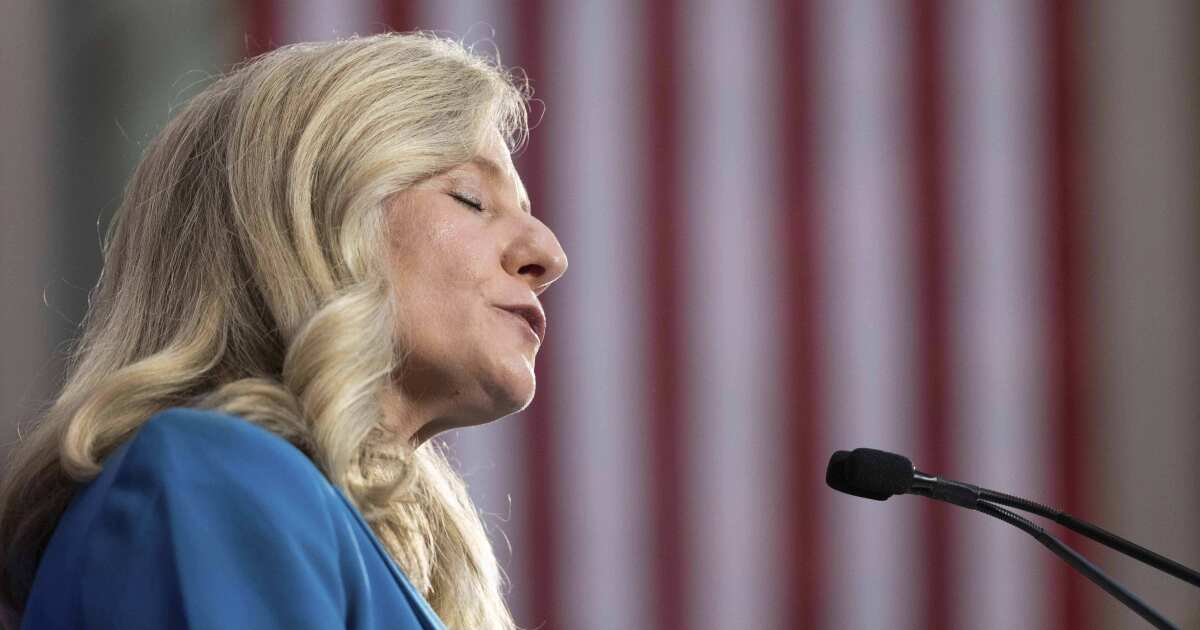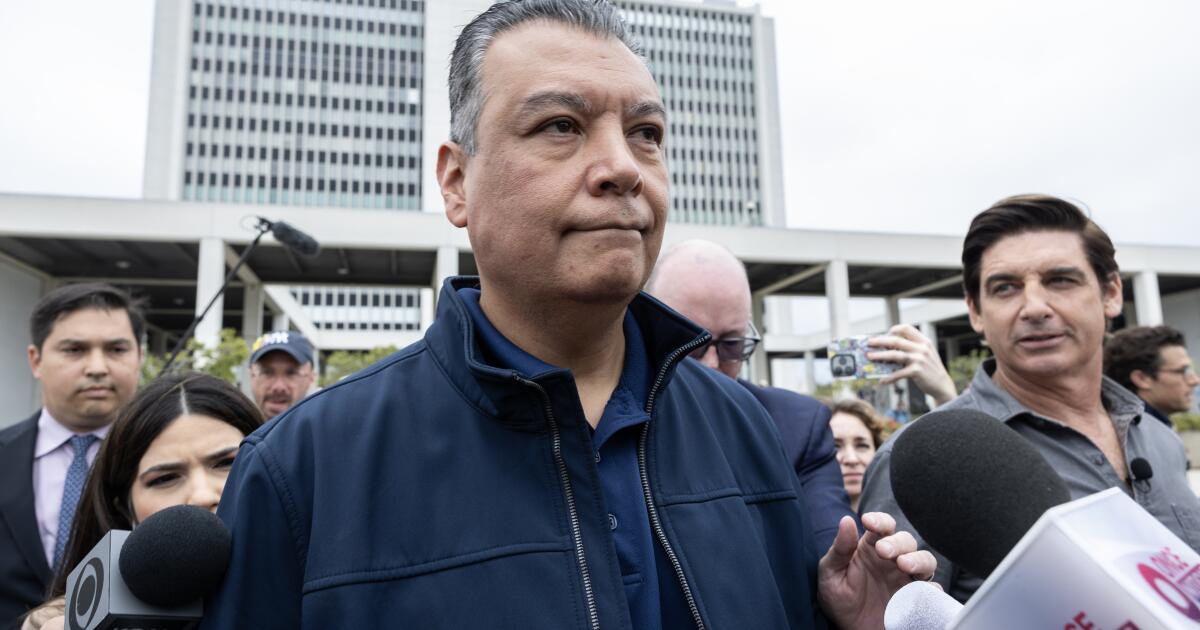Trump’s redistricting push threatens minority representation
KANSAS CITY, Mo. — The Rev. Emanuel Cleaver III wants a second civil rights movement in response to President Trump and his fellow Republicans who are redrawing congressional district boundaries to increase their power in Washington.
In Missouri, the GOP’s effort comes at the expense of Cleaver’s father, Democratic Rep. Emanuel Cleaver II, and many of his Kansas City constituents, who fear a national redistricting scramble will reverse gains Black Americans won two generations ago and will leave them without effective representation on Capitol Hill.
“If we, the people of faith, do not step up, we are going to go back even further,” the younger Cleaver told the St. James Church congregation on a recent Sunday, drawing affirmations of “amen” in the sanctuary where his father, also a minister, launched his first congressional bid in 2004.
Trump and fellow Republicans admit their partisan intent, emboldened by a Supreme Court that has allowed gerrymandering based on voters’ party leanings. Democratic-run California has proposed its own redraw to mitigate GOP gains elsewhere.
Yet new maps in Texas and Missouri — drafted in unusual mid-decade redistricting efforts ahead of the 2026 midterm elections — are meant to enable Republican victories by manipulating how districts are drawn.
Civil rights advocates, leaders and affected voters say that amounts to race-based gerrymandering, something the Supreme Court has blocked when it finds minority communities are effectively prevented from electing representatives of their choice.
“It’s almost like a redistricting civil war,” said NAACP President Derrick Johnson, whose organization is suing to block the Texas and Missouri plans.
‘Packing and cracking’
In redistricting lingo, it’s called “packing and cracking.” Those maneuvers are at the heart of Trump’s push for friendlier GOP districts as he tries to avoid reprising 2018, when midterms yielded a House Democratic majority that stymied his agenda and impeached him twice.
Because nonwhite voters lean Democratic and white voters tilt Republican, concentrating certain minorities into fewer districts — packing — can reduce the number of minority Democrats in a legislative body. By spreading geographically concentrated minority voters across many districts — cracking — it can diminish their power in choosing lawmakers.
The elder Cleaver, seeking an 11th term, said the Trump-driven plans foster an atmosphere of intimidation and division, and he and fellow Kansas City residents fear the city could lose federal investments in infrastructure, police and other services.
“We will be cut short,” said Meredith Shellner, a retired nurse who predicted losses in education and healthcare access. “I just think it’s not going to be good for anybody.”
Missouri’s U.S. House delegation has six white Republicans and two Black Democrats. The new map, which could still require voter approval if a referendum petition is successful, sets the GOP up for a 7-1 advantage.
Republican Gov. Mike Kehoe says the new map better represents Missouri’s conservative values. And sponsoring state Rep. Dirk Deaton says it divides fewer counties and municipalities than the current districts.
“This is a superior map,” the Republican legislator said.
Cleaver’s current 5th District is not majority Black but includes much of Kansas City’s Black population. New lines carve Black neighborhoods into multiple districts. The new 5th District reaches well beyond the city and would make it harder for the 80-year-old Cleaver or any other Democrat to win in 2026.
In Texas, Abbott insists no racism is involved
A new Texas map, which Gov. Greg Abbott signed into law, is designed to send five more Republicans to Washington, widening his party’s 25-13 advantage to a 30-8 one.
The old map had 22 districts where a majority of voters identified as white only. Seven were Latino-majority and nine were coalition districts, meaning no racial or ethnic group had a majority. By redistributing voters, the new map has 24 white-majority districts, eight Latino-majority districts, two Black-majority districts and four coalition districts.
Abbott insists new boundaries will produce more Latino representatives. But they’ll likely reduce the number of Black lawmakers by scrambling coalition districts that currently send Black Democrats to Washington.
Democratic Rep. Al Green was drawn out of his district and plans to move to seek another term. On the House floor, the Black lawmaker called GOP gerrymandering another chapter in a “sinful history” of Texas making it harder for nonwhites to vote or for their votes to matter.
Green said it would hollow out the Voting Rights Act of 1965 “if Texas prevails with these maps and can remove five people simply because a president says those five belong to me.”
The NAACP has asked a federal court to block the Texas plan. Section 2 of the Voting Rights Act broadly prohibits districts and other election laws that limit minority representation.
The NAACP’s Johnson suggested Republicans are playing word games.
“Was this done for partisan reasons? Was it done for race? Or is partisanship the vehicle to cloak your racial animus and the outcomes that you’re pursuing?” he asked.
In Missouri, the NAACP has sued in state court under the rules controlling when the governor can call a special session. Essentially, it argues Kehoe faced no extenuating circumstance justifying a redistricting session, typically held once a decade after the federal census.
Saundra Powell, a 77-year-old retired teacher, framed the redistricting effort as backsliding.
She recalls as a first-grader not being able to attend the all-white school three blocks from her home. She changed schools only after the Supreme Court declared segregated schools unconstitutional in 1954.
“It seems worse 1758147903 than what it was,” Powell said.
Hollingsworth, Barrow and Ingram write for the Associated Press. Barrow reported from Atlanta. AP reporter John Hanna contributed from Topeka, Kan.




